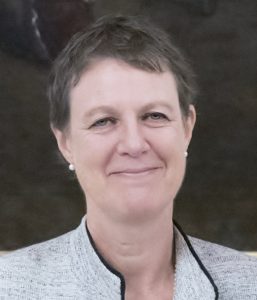Staff Page
Li, Tania

- Research Departments・Position
- Global Humanosphere
Visiting Research Scholar - Area
- Indonesia, Southeast Asia
- Research Interests / Keywords
- Land, labour, development
- Contact
- tania.li@utoronto.ca
Li, Tania
Overview
Plantations Today
For the past decade I have been examining the re-emergence of large scale, mono-crop plantations as a privileged form of production in the global south. Corporations, governments and development agencies support plantation expansion by arguing that plantation production makes efficient use of land and labour, brings jobs and development to rural areas, and supplies governments with revenues and foreign exchange. The list of claimed benefits is endlessly repeated by proponents of plantation expansion, yet there is surprisingly little research that supports these claims with empirical findings from zones in which plantations have come to dominate.
Plantation expansion is a matter of concern to scholars in many disciplines from the environmental sciences to geography and sociology, where land use transformation and labour migration are core themes. Oil palm in particular has become the subject of contentious debates in the European Union and elsewhere as advocacy groups highlight problems of species loss, forest destruction, and climate change, as well as abuses of human rights. Industry advocates recognize that some plantation corporations are irresponsible but argue that certification schemes can guarantee “sustainable oil palm” that is harm-free.
In 2010-2015 I conducted in depth, ethnographic research on the social, political and economic impacts of oil palm plantations in West Kalimantan, Indonesia, together with my colleague Dr Pujo Semedi from Gadjah Mada University and a team of student researchers. We studied the processes that enabled some actors to benefit from plantation presence while others were severely marginalized. During the fellowship in Kyoto I will focus on research translation, aiming to draw from our research to contribute to public policy and debate. Specifically, I propose to develop a series of publications in multiple written and graphic formats such as short articles, blogs, podcasts, and visual media designed to reach audiences beyond the academic milieu.
Plantation expansion is a matter of concern to scholars in many disciplines from the environmental sciences to geography and sociology, where land use transformation and labour migration are core themes. Oil palm in particular has become the subject of contentious debates in the European Union and elsewhere as advocacy groups highlight problems of species loss, forest destruction, and climate change, as well as abuses of human rights. Industry advocates recognize that some plantation corporations are irresponsible but argue that certification schemes can guarantee “sustainable oil palm” that is harm-free.
In 2010-2015 I conducted in depth, ethnographic research on the social, political and economic impacts of oil palm plantations in West Kalimantan, Indonesia, together with my colleague Dr Pujo Semedi from Gadjah Mada University and a team of student researchers. We studied the processes that enabled some actors to benefit from plantation presence while others were severely marginalized. During the fellowship in Kyoto I will focus on research translation, aiming to draw from our research to contribute to public policy and debate. Specifically, I propose to develop a series of publications in multiple written and graphic formats such as short articles, blogs, podcasts, and visual media designed to reach audiences beyond the academic milieu.
